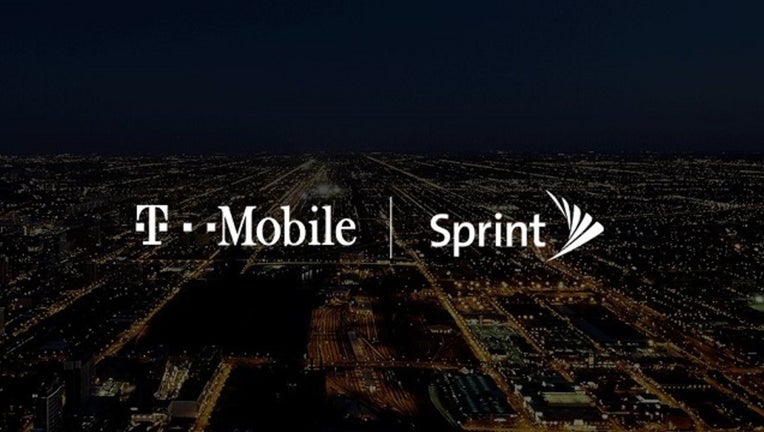Justice Department approves T-Mobile's $26.5B Sprint deal

WASHINGTON - U.S. regulators have approved T-Mobile's $26.5 billion takeover of rival Sprint, despite fears of higher prices and job cuts, in a settlement that would create three giant U.S. cellphone companies.
Friday's approval by the Justice Department and five state attorneys general comes after Sprint and T-Mobile agreed to conditions that would set up satellite-TV provider Dish as a fourth wireless company, so the number of major U.S. providers remains at four.
Dish is buying Sprint's prepaid cellphone brands including Boost and Virgin Mobile -- some 9 million customers -- and some spectrum, or airwaves for wireless service, from the two companies for $5 billion. It will also be able to rent T-Mobile's network for seven years while it builds its own. The Justice Department's antitrust chief, Makan Delrahim, said the settlement sets up Dish "as a disruptive force in wireless."
Sprint and T-Mobile combined would now approach the size of Verizon and AT&T. The companies have argued that bulking up will mean a better next-generation "5G" wireless network than they could make on their own.
The two companies tried to combine during the Obama administration but regulators rebuffed them. They resumed talks on combining once President Donald Trump took office, hoping for more industry-friendly regulators. The companies appealed to Trump's desire for the U.S. to "win" a global 5G race with China as this faster, more reliable wireless is rolled out and applications are built for it.
Meanwhile, the Republican-controlled Federal Communications Commission agreed in May to back the deal after T-Mobile promised to build out rural broadband and 5G, sell its Boost prepaid brand and keep prices on hold for three years.
But public-interest advocates complained the FCC conditions did not address the problems of the merger -- higher prices, less wireless competition -- and would be difficult for regulators to enforce.
Attorneys general from 13 states and the District of Columbia then filed a lawsuit to block the deal. They say the promised benefits, such as better networks in rural areas and faster service overall, cannot be verified, while eliminating a major wireless company will immediately harm consumers by reducing g competition and driving up prices for cellphone service.
They are not likely to be satisfied by Friday's settlement. None of the states involved in the suit were part of it.
A judge must also approve the Justice Department's settlement.
Dish is largely a company with a declining satellite-TV business. It has no wireless business, but over the past decade it has spent more than $21 billion accumulating a large stock of spectrum for wireless service. The wireless industry has long been skeptical of Dish's ambitions to actually build a wireless service, instead speculating that the company wanted to make money by selling its holdings to other companies.
While Delrahim said the deal set Dish up as a major wireless company, it is not clear whether that will happen.
Recon Analytics founder Roger Entner, a longtime telecom analyst, said in an interview before the Justice Department's announcement -- many terms had been leaked to the press beforehand -- that the settlement was good for the incumbent wireless companies, as a weak competitor in Sprint is being replaced by an even weaker one in Dish.
Sprint, the current No. 4 wireless provider, has thousands of stores and other distribution points as well as a cellular network. Dish has none of that, although the settlement gives it the option of taking over some stores and cell sites that T-Mobile ditches over the next five years. Creating and maintaining a retail operation and network cost tens of billions of dollars, Entner said. He doubts that Dish could do that alone, as its core business is in deep decline, or that Dish could find a wealthier company to help it do so.
But New Street Research analysts say Dish could build a lower-cost network and provide cheaper plans for customers. Still, that could take years.
George Slover, senior policy counsel for Consumer Reports, also said in an interview earlier that the current structure of four competing providers works. He said it's not the same to diminish that while enabling a competitor that doesn't currently have the infrastructure. "Dish might become a competing network at some point but it's not there now."

